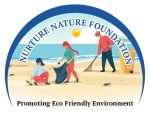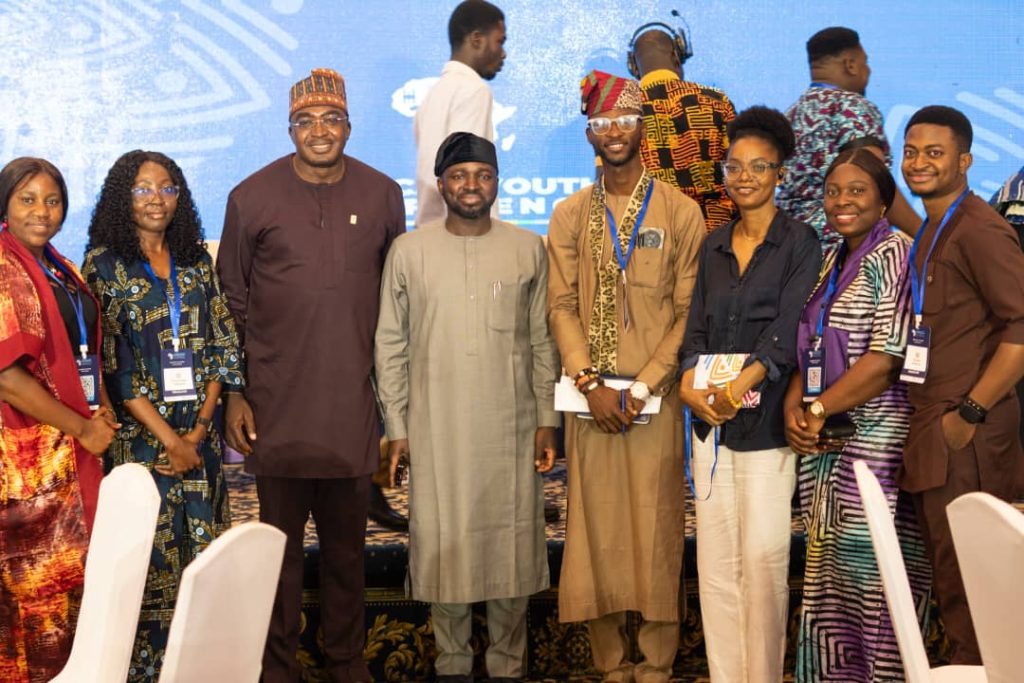Natural Resources & Environmental Governance • Accra, Ghana • 11–13 September 2025
Executive Summary
AYC‑NREG 2025 convened over 2,000 young leaders, CSOs, policymakers, and partners to co‑design solutions for Africa’s natural resources and environment. Core discussions covered fair climate finance, governance accountability, youth leadership, and ocean/blue economy innovation. NNF’s Peter Asiedu served as a panelist and speaker, while Eunice Sally Hayibor attended as NNF’s reporter/observer documenting sessions and insights.
Day 1 — Opening & Vision
The conference opened with remarks from SYND‑Ghana leadership, government officials, and international partners, setting the agenda around transparency, accountability, and youth leadership in natural resource governance.
Keynote Panel: ‘Youth as Leaders, Not Beneficiaries’ — Featured Peter Asiedu (NNF), emphasizing the need for stronger coastal and ocean governance, particularly in addressing marine litter and advancing blue economy initiatives.
Afternoon breakout sessions included:
– Climate Finance & Accountability: Focused on barriers to accessing climate funds and proposals for transparent, depoliticized mechanisms.
– UNESCO Ocean Innovations Session: Introduced youth-led solutions for recycling, ocean literacy, and building sustainable blue value chains.
Day 2 — Dialogues & Workshops
Day 2 featured parallel tracks exploring renewable energy and green jobs, circular economy and waste management, and policy reforms for youth inclusion.
The UNESCO Ocean Innovations session continued with discussions on implementation roadmaps for innovation labs, citizen-science monitoring programs, and regional coastal initiatives.
A Youth Policy Hackathon concluded the day, with the winning proposal being the ‘African Blue Economy Youth Hub,’ a digital platform to connect innovators, funders, and policymakers across the continent.
Day 3 — Resolutions & Commitments
Day 3 focused on consolidating commitments and setting actionable next steps. Resolutions included:
– Establishing youth quotas in governance structures.
– Ensuring transparent and equitable climate finance access.
– Creating frameworks to guarantee community benefits from natural resource projects.
Key commitments included the launch of a Blue Innovation Fund and continent-wide ocean literacy campaigns. The closing plenary aligned stakeholders around follow-up actions and regional coordination.
NNF Contributions
Peter Asiedu (Executive Director, NNF) served as a key panelist and speaker, sharing insights on marine litter, circular economy ventures, and youth-centered governance models.
Eunice Sally Hayibor (Innovations & Research Lead, NNF) attended as NNF’s reporter/observer, documenting UNESCO ocean innovation sessions and stakeholder dialogues.
NNF’s proposed programs include Adopt-a-Beach and Adopt-a-Market initiatives, youth eco-clubs, and citizen-science monitoring of biodiversity and pollution hotspots.
Next Steps
1. Follow-up workshops in Q4 2025 to design national action plans.
2. NNF to serve as a technical partner for UNESCO’s ocean innovation roadmap.
3. Establish planning committees for the 2026 African Youth Conference with youth representatives from each region.

